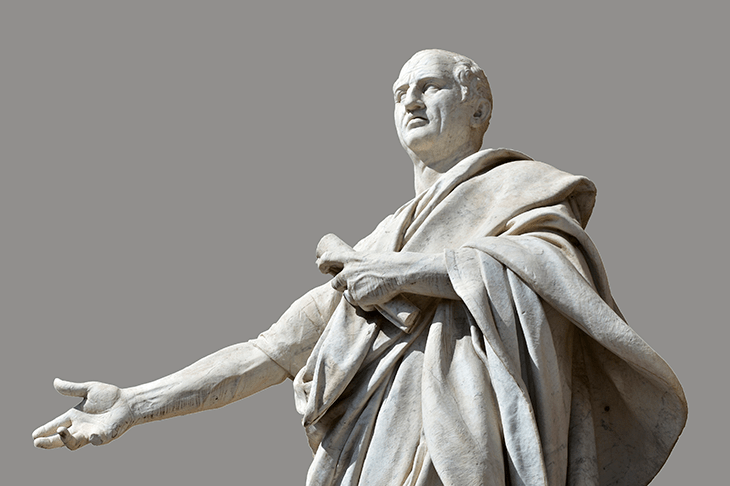The Black Lives Matter website (different from the new Black Liberation Movement) mostly presents an image of an organisation of the clenched fist and permanent protest. Its work with the police is an important exception, but otherwise that rhetoric seems unlikely to create sympathy and understanding among white communities, especially when black successes — e.g. anti-racist protocols across all institutions — remain unacknowledged. The Roman statesman Cicero understood where such disharmony could lead.
In 63 bc, Cicero was made consul to deal with his rival Catiline, who (Cicero claimed) was planning an armed insurrection and the economic reordering of the state. Under the banner of a ‘concord of the classes’ (concordia ordinum), Cicero appealed to the two top ordines — the senate and the equites (the state’s economic power bloc) — to stand together to resist it. Catiline was defeated, leaving Cicero to claim a triumph.
It did not last. In 60 bc control of the senate was effectively taken over by a triumvirate of dynasts (Caesar, Pompey and Crassus), and in 58 bc Cicero was exiled. When he was recalled a year later, he began thinking in terms of a broader socio-political concordia, embracing all Romans and Italians of good will. He called this a consensus omnium bonorum, designed to shore up the crumbling republican system and help return it to what it was. To no avail. Caesar’s victory in the almost inevitable civil war of 49 bc destroyed the republic.
But Cicero was right. He argued that ‘a people is not just any collection of human beings brought together in any sort of way, but those coming together to form a society by agreeing what justice is, and mutually participating in its advantages’. Is mutuality a priority for BLM? Further, ‘Nature ordains that any human shall desire to promote the interests of any other human, whoever he may be, just because he is a fellow human’.








Comments
Join the debate for just £1 a month
Be part of the conversation with other Spectator readers by getting your first three months for £3.
UNLOCK ACCESS Just £1 a monthAlready a subscriber? Log in